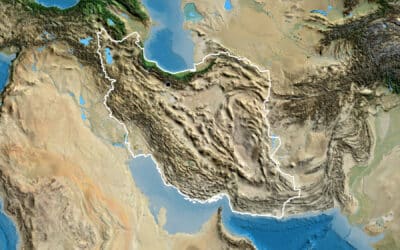Whether it was President Barack Obama ordering airstrikes on Libya and Syria over a decade ago, or President Donald Trump directing strikes on Yemen and the Houthis today, non-interventionists often insist these presidents need congressional approval, as the Constitution demands.
And, without fail, hawkish advocates of such unilateral, executive acts of war without congressional approval will cite President Thomas Jefferson going after the Barbary pirates for attacking ships that sailed Mediterranean in the early nineteenth century.
They insist that Jefferson just did this, bypassing Congress, and such foreign policy actions that don’t amount to a full blown war can be carried out by the commander-in-chief. If the non-interventionist is concerned with constitutional fidelity, the interventionist attempts to get past that with semantics.
Remember that the Vietnam War was never declared by Congress and to this day is considered a mere police action. Strangely, the Vietnam Veterans Memorial in Washington DC is never referred to as the ‘Vietnam Police Action Memorial.’
Yet, the Jefferson and Barbary pirates history of hawks’ imaginations isn’t even true.
In a recent interview, Senator Rand Paul told the Libertarian Institute that Jefferson did end up getting congressional approval for his actions regarding the Barbary pirates.
In discussing limits on executive powers, on everything from war to tariffs, Paul said on Tuesday, “One of the key things about the separation of powers, that was important to our Founding Fathers, was to make sure nobody had all the power, particularly the executive.”
“They feared a king,” Paul said. “They feared a president with too much power, so they set up the Constitution, not only on war but also taxes.”
The senator explained, “Because with regard to war, you know the quotes, you’ve heard me say these many times, Madison says the executive branch is the branch most prone to war, therefore the Constitution with studied care vested that power in the legislature.”
Regarding both taxes and war, Paul observed, “I think the issues are intertwined. Even the (U.S.) attacks on the Houthis, which, I think you can make an argument that we have a right to defend our shipping and maybe something should be done. But if that’s true, the case should be presented to Congress and Congress should vote on it.”
That’s when he brought up Barbary pirates mythology.
Paul directly addressed hawks’ perennial argument. “One example that interventionists always use is ‘What about the Barbary pirates? What about Thomas Jefferson? He went after the Barbary pirates. You can’t use him as a non-interventionist.’”
“But actually, if you look at it, he did, in a very quick fashion, go after the Barbary pirates, but he came back and they voted on it,” Paul said. “He felt like it was illegitimate and could be questioned if Congress didn’t vote on it. Congress did vote, and ended up voting to give him the power to go after the Barbary pirates.”
Historian and Libertarian Institute senior fellow Tom Woods has explained in lengthy detail the circumstances Senator Paul referred to:
“Another incident frequently cited on behalf of a general presidential power to deploy American forces and commence hostilities involves Jefferson’s policy toward the Barbary states, which demanded protection money from governments whose ships sailed the Mediterranean. Congressional naval legislation had provided that, among other things, six frigates ‘shall be officered and manned as the President of the United States may direct.’ (Final authorization for the funding of the last three of these ships was approved only in late 1798, so the frigates in question were ready for action immediately prior to Jefferson’s accession to office.) It was to this instruction and authority that Jefferson appealed when he ordered American ships to the Mediterranean. In the event of a declaration of war on the United States by the Barbary powers, these ships were to “protect our commerce & chastise their insolence – by sinking, burning or destroying their ships & Vessels wherever you shall find them.”
Woods continued:
“In late 1801, the pasha of Tripoli did declare war on the U.S. Jefferson sent a small force to the area to protect American ships and citizens against potential aggression, but insisted that he was ‘unauthorized by the Constitution, without the sanction of Congress, to go beyond the line of defense’; Congress alone could authorize ‘measures of offense also.’ Thus Jefferson told Congress: ‘I communicate [to you] all material information on this subject, that in the exercise of this important function confided by the Constitution to the Legislature exclusively their judgment may form itself on a knowledge and consideration of every circumstance of weight.”
“Jefferson consistently deferred to Congress in his dealings with the Barbary pirates,” Woods added.
President Jefferson said in an address to Congress in 1805 regarding a boundary dispute between Spain over Florida and Louisiana:
“Considering that Congress alone is constitutionally invested with the power of changing our condition from peace to war, I have thought it my duty to await their authority for using force…But the course to be pursued will require the command of means which it belongs to Congress exclusively to yield or to deny.” [Emphasis Added]
“To them I communicate every fact material for their information and the documents necessary to enable them to judge for themselves,” Jefferson said. “To their wisdom, then, I look for the course I am to pursue, and will pursue with sincere zeal that which they shall approve.”
Acts of war are war and declarations of them are to be determined by Congress according to the U.S. Constitution. President Thomas Jefferson even thought so in battling the Barbary pirates over two centuries ago.
Thanks to Rand Paul for this important reminder.
































